Volunteers use their expertise to improve day-to-day life for IDF veterans
Wounded veterans in Israel are developing tailor-made devices to improve daily life, with help from a team of experts.
The Makers For Heroes program recruits volunteers and companies to design products that aren’t available anywhere else.
Innovations created through the initiative this year alone include:
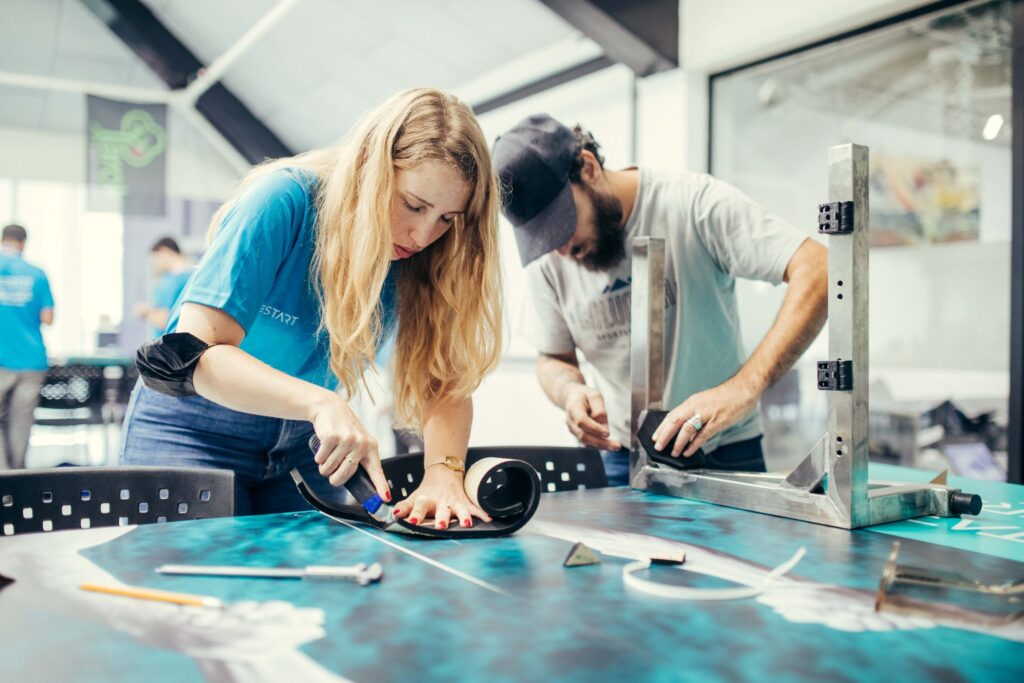
• An adapter that prevents a veteran’s prosthetic leg from slipping off of the pedals of their mountain bike.
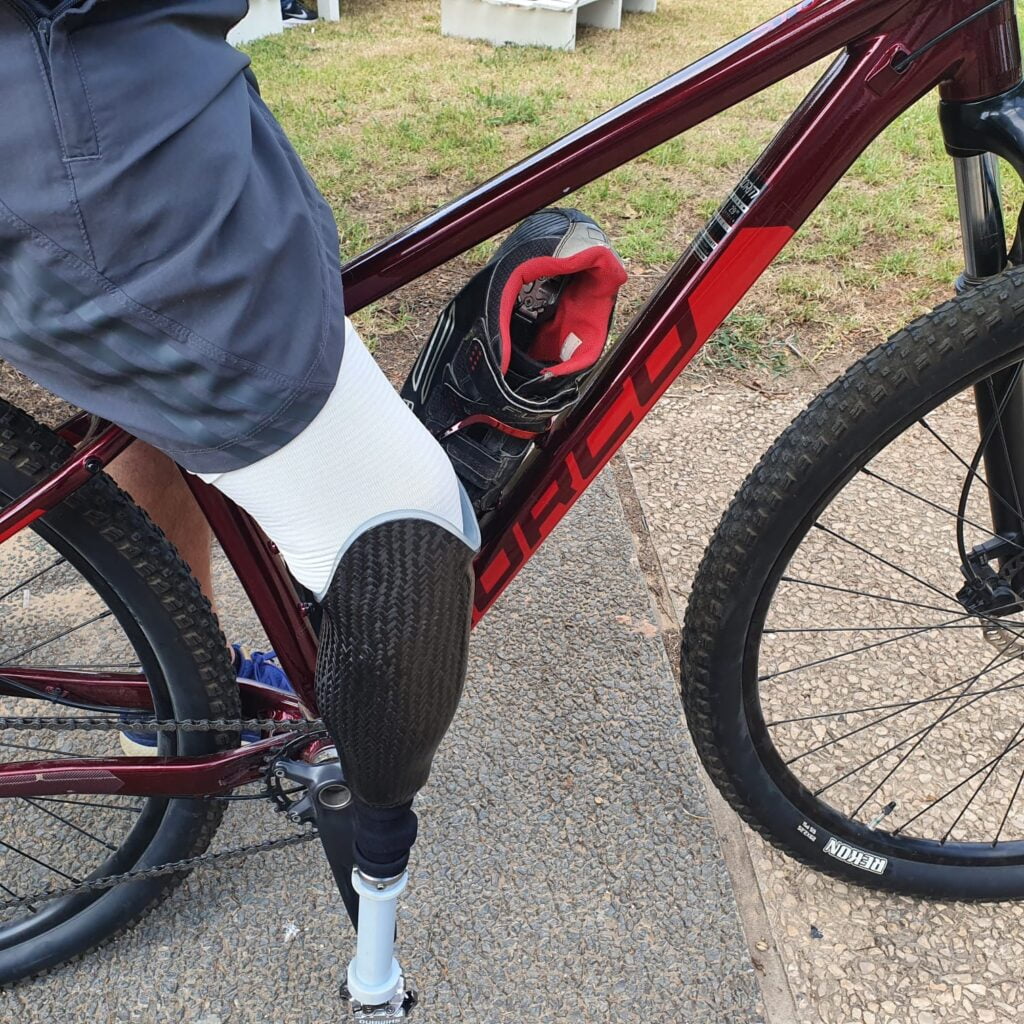
• A magnet that connects two crutches so the user doesn’t have to lay one of them on the floor to free their hand.
• An app on the Apple Watch for a veteran with a brain injury who has short-term memory loss. It helps his family find him when he gets lost.
It has also modified a surfboard for a veteran who was paralyzed from the chest-down.
Makers For Heroes is one of the life-changing programs offered by Restart, a non-profit organization dedicated to helping wounded IDF veterans.
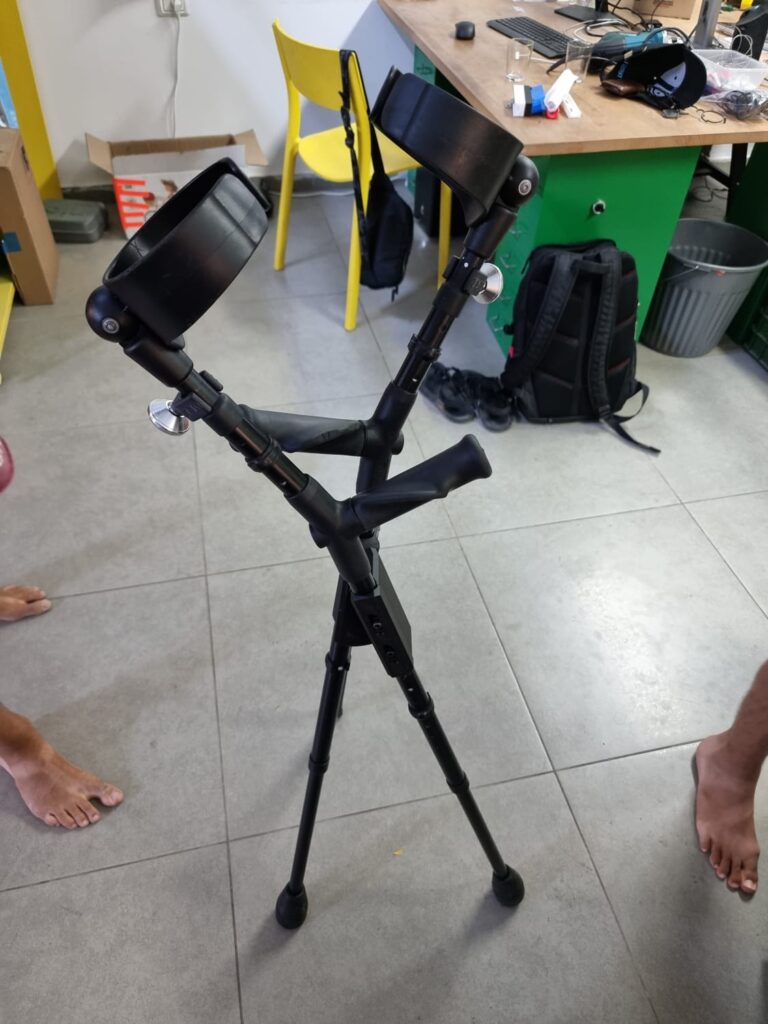
Every year, the organization takes 20 to 25 wounded veterans with specific challenges and builds volunteer teams with relevant qualifications and knowledge to solve each of them.
Restart’s partners have included defense companies Rafael, Elbit, and Tomer, as well as Bank Hapoalim and AppsFlyer, a marketing analytics company.
“There are so many needs that are not being tackled or solved,” says Niv Efron, CEO of Restart, “because there is no business model around them.
“Through Restart’s Makers for Heroes, a person who feels neglected and has so many difficulties can suddenly have a team of people who really work with him, and help him specifically with a tailor-made solution.
“When a soldier gets injured, they are in the highest physical peak of their lives, but for many it’s a very, very long fall when they get injured.
“One of the things that gets lost is the sense of capability, and here we give an opportunity for this person to do one thing he couldn’t do before. This gives them a whole new mindset, and helps them realize how capable they really are.”
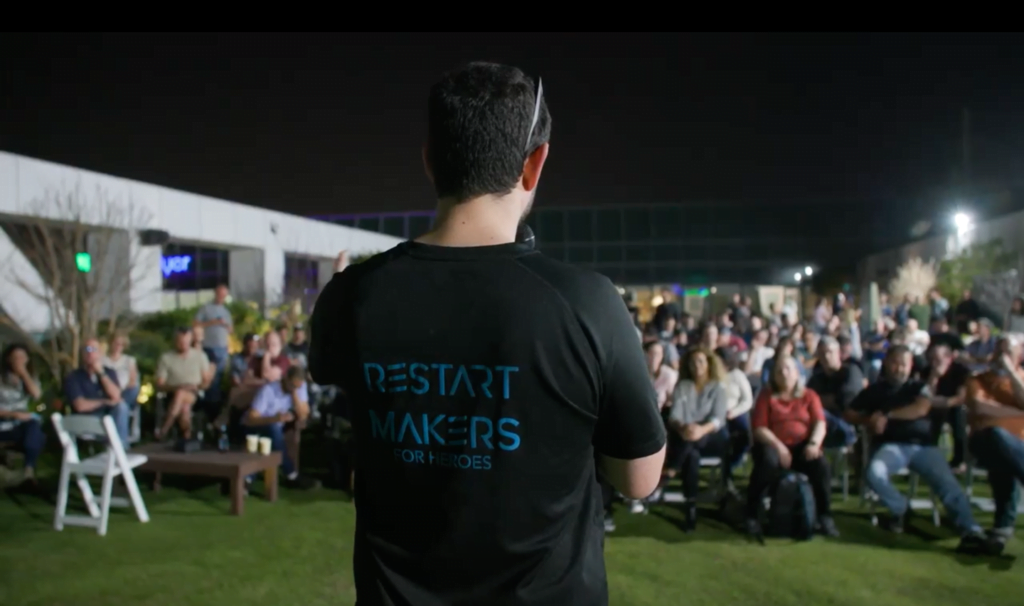
The main aim is not to create businesses from these products, because Restart’s priority is to focus on each individual’s specific need. “We want to create a really big impact on the veteran, and not a small impact on many,” says Efron.
But he does see the value of making these products more widely-available, and says that it is on the organization’s agenda. “We want to make sure that we do it right, and in the proper way – we will get there.”
Among this year’s successful projects is a shield that allows David, a veteran with Chronic Pain Syndrome, to play baseball with his kids.
He suffers from pain even after his injury has healed. A team from Elbit developed a lightweight shield from carbon fiber for his wheelchair to stop the ball hitting his legs.
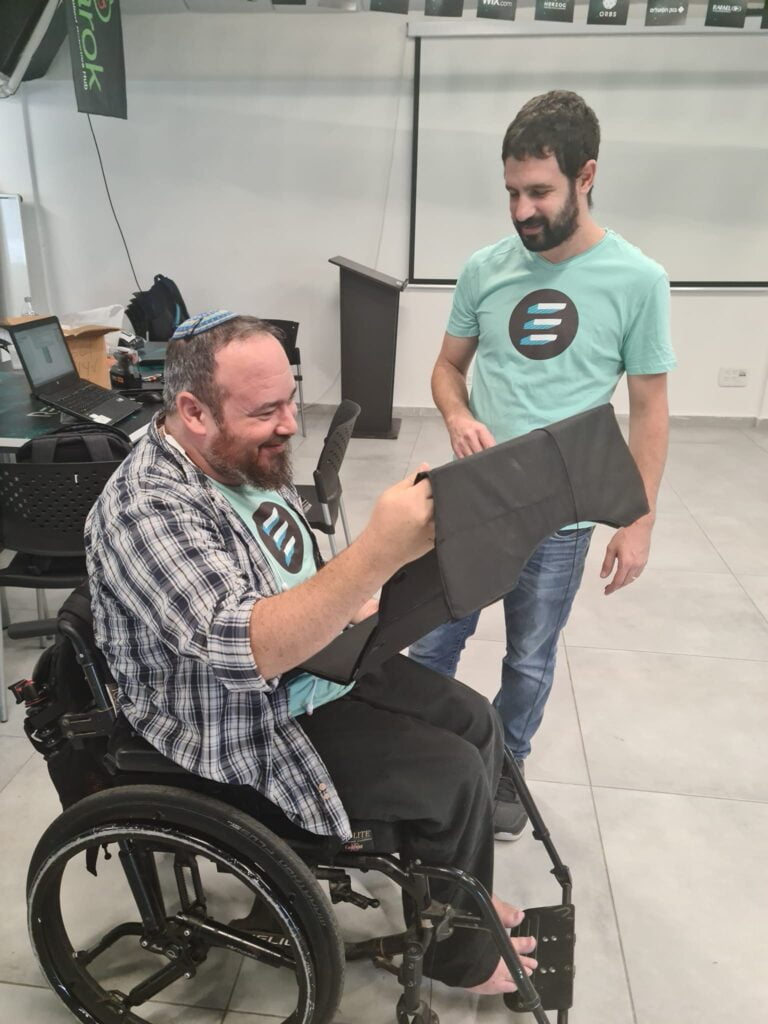
Another team, from defense firm Rafael, 3D-printed a minimalist wrist brace that connects to wristwatches for Shay Senior, a veteran with a wrist injury. He couldn’t wear a watch on top of a regular brace without feeling a lot of pressure and pain.
Senior is also the Co-founder of Palta, the world’s first certification program for inclusive clothing for people with disabilities. He’s used his expertise in the Makers for Heroes program to create solutions for other veterans.
Sign up for our free weekly newsletter
Subscribe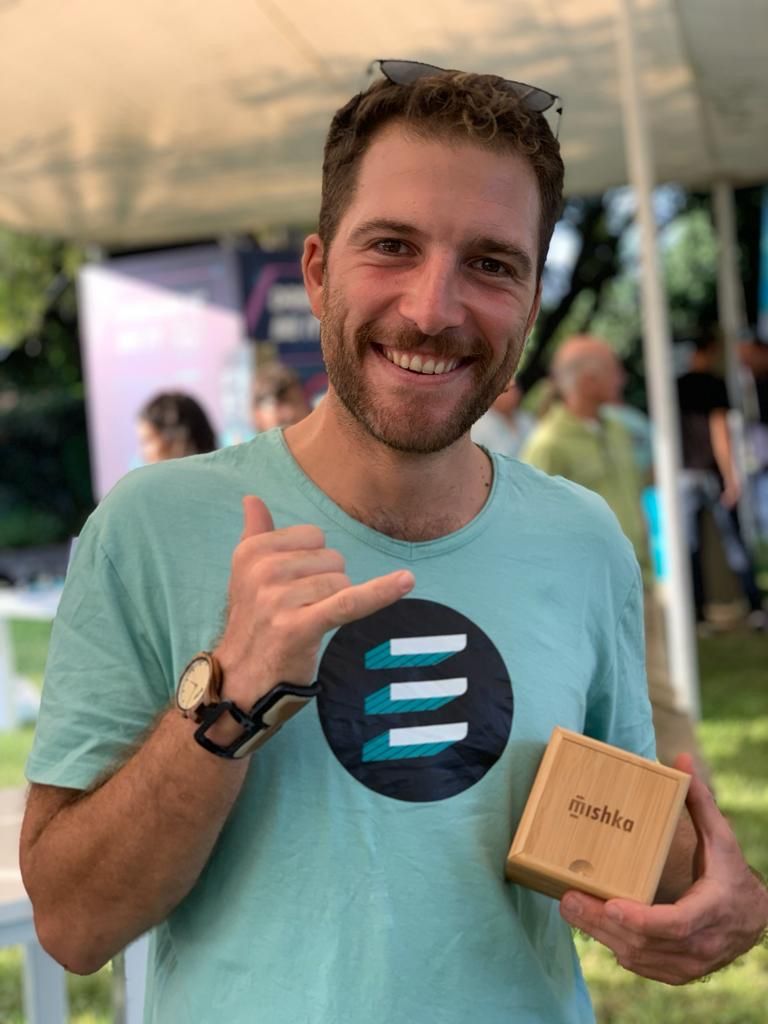
Restart has also created a specially-modified surfboard that allowed veteran Inbal Reichler to surf again after she was paralyzed from the chest-down. She went on to set up Wave-ability, a nonprofit that makes surfing accessible for people with disabilities.
“When we asked her why she wanted to go into the water and why it was her goal, she said, ‘This is freedom for me. Being in the water makes me feel equal.’” says Efron.
Restart posts about the opening of their programs on their social media each year, but Israeli veterans have a tight-knit community – so many of them actually find out about it from previous participants. Restart also recruits participants through its collaboration with other organizations, such as the Zahal Disabled Veterans Fund.
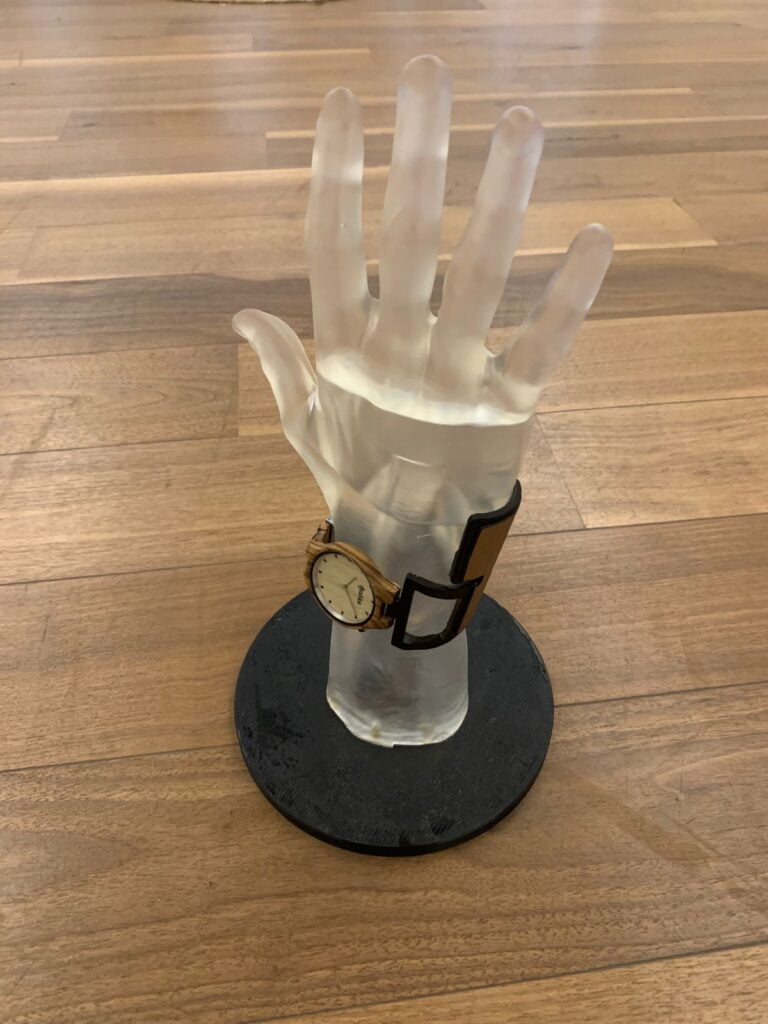
Restart assesses the needs of about 50 applicants, and finds partners to help with about half of them. “Sometimes there is a solution but it is too expensive, so we can develop something similar but more low-cost for that specific need,” says Efron.
After choosing the challenges, Restart has a launch event where it displays the different challenges so volunteers can come and decide which one they want to be a part of. Once the teams are formed, they have a one-day hackathon to see if they can complete a prototype.
“We do this to make sure the team is working in the right direction, that it’s something that works, that it’s something that the veteran will be happy with – because the target is the veteran, not the solution,” says Efron.
After a few weeks of working on the solution, there is a final event where the product is completed and delivered to the veteran. Restart holds a closing event, with a judging panel that chooses the best products of the year. “It’s a fun way to motivate the teams,” he says.
“There are many organizations that help veterans, but not in the way that we do. That’s why we chose this niche. And that’s why we also work with these organizations together, because we believe that we will have a much bigger impact in this way.”
Restart was founded in 2014 to help the many soldiers who were hospitalized during Operation Protective Edge, the military operation that was launched following the kidnapping and murder of three Israeli teenagers in the West Bank by Hamas militants.
“It started when a few people from the Israeli tech scene came to visit,” says Efron. “They wanted to volunteer and give something back to the wounded veterans, but they didn’t want to just make them happy – they wanted to do something meaningful.
“They tried to dig in and understand what challenges veterans face when they are injured. But once you get out of this injury, what do you do next? How do you integrate back into society?
“In Israel, there’s a very common routine. You turn 18, you go to the army, you get discharged, you save money, you go on a big trip. And once you’re back, you start your life through studies and careers. But many veterans don’t have these experiences because of their rehabilitation.”
He says that even after rehabilitation, there’s still physical and emotional difficulties that the veterans are left with.
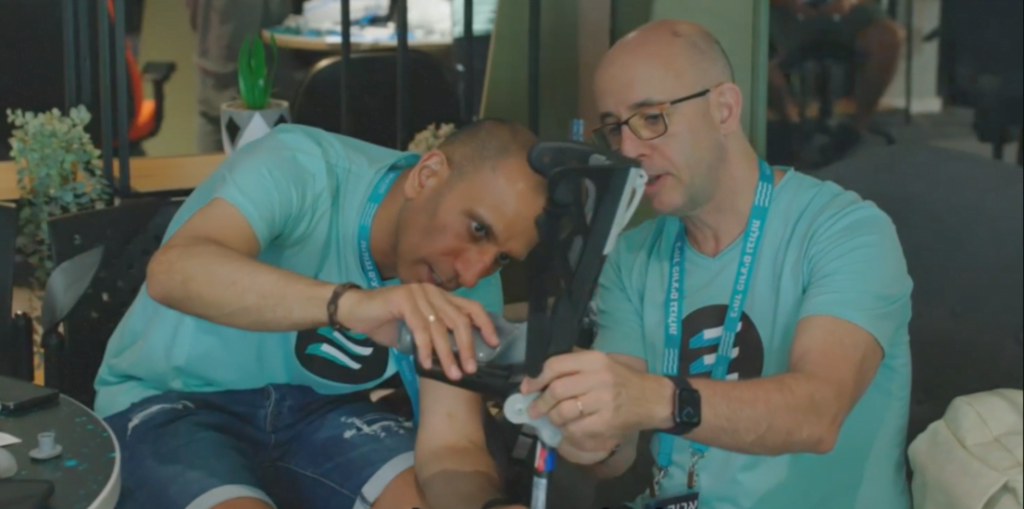
“How can these veterans close the gap between them and their friends? How can they become people that feel productive and meaningful? This is what we want to do. We want to be this catalyst for veterans to reintegrate into society, to grow, to grow their careers, and to get back their sense of capability.
“We know that Israel is a startup nation. So we know not only how to invent things for the world, but also to invent things that help these veterans to get back on track.
“We have so many tech capabilities that we can leverage, and use them to invent different technological solutions for wounded soldiers and the challenges they face.”
In addition to its Makers For Heroes program, Restart has an employment program to help veterans get back to work. They have workshops every two weeks, and each program gives the veterans different practical tools, such as negotiation, body language, how to write a resume, and how to prepare for an interview.
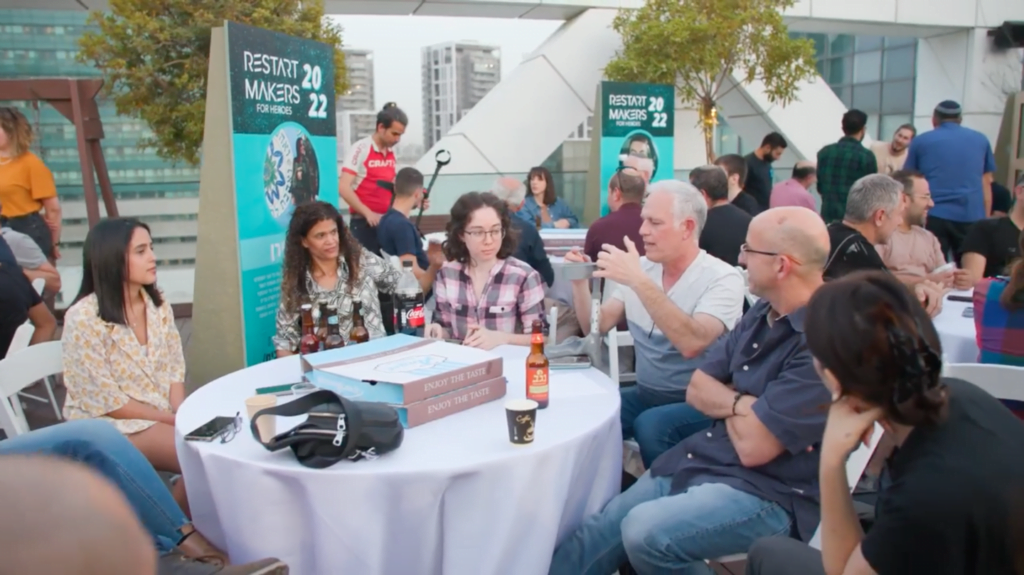
It also has a six-month long mentorship program where veterans build personal goals and a work plan together with a mentor, who is someone with experience from various industries. “We have veterans who started jobs after the program, and another that has a business under his name.”
Restart will launch its annual crowdfunding campaign in Israel to raise 25 per cent of its yearly budget in November. It is also collaborating with Palta to release a capsule collection of inclusive clothing, which will be available on the Restart website next month.
Related posts

Editors’ & Readers’ Choice: 10 Favorite NoCamels Articles

Forward Facing: What Does The Future Hold For Israeli High-Tech?

Impact Innovation: Israeli Startups That Could Shape Our Future


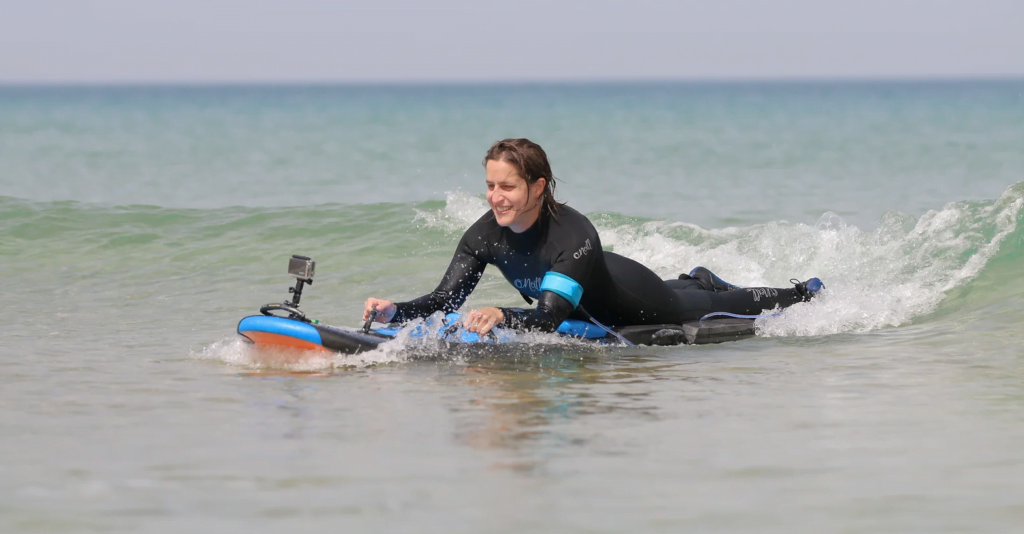

Facebook comments